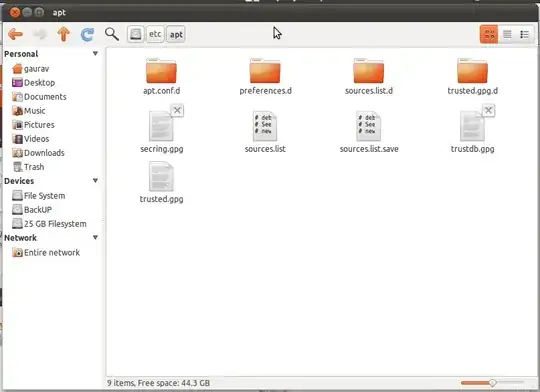Possible Duplicate:
Many directories have a “.d” suffix/extension. What does it mean?
Why do most of the folders in /etc/* end with *.d
I am just curious to know, why folders would have this ( extension? ).

Possible Duplicate:
Many directories have a “.d” suffix/extension. What does it mean?
Why do most of the folders in /etc/* end with *.d
I am just curious to know, why folders would have this ( extension? ).

The .d denotes a directory containing configuration files, as opposed to a single config file.
This applies to other configuration directories under /etc such as /etc/apt.conf.d/, /etc/rc.d
.exethat's called an extension (it's just part of the file name in NTFS, too!), and when that file is brought over to an Ubuntu system, it is correct to call the.exesuffix an extension here, too. Furthermore,.odtis an extension,.tar.gzand the final.gzcan both be called extensions (and.tar.gzcan exist on Windows too!). – Eliah Kagan Aug 14 '13 at 10:27